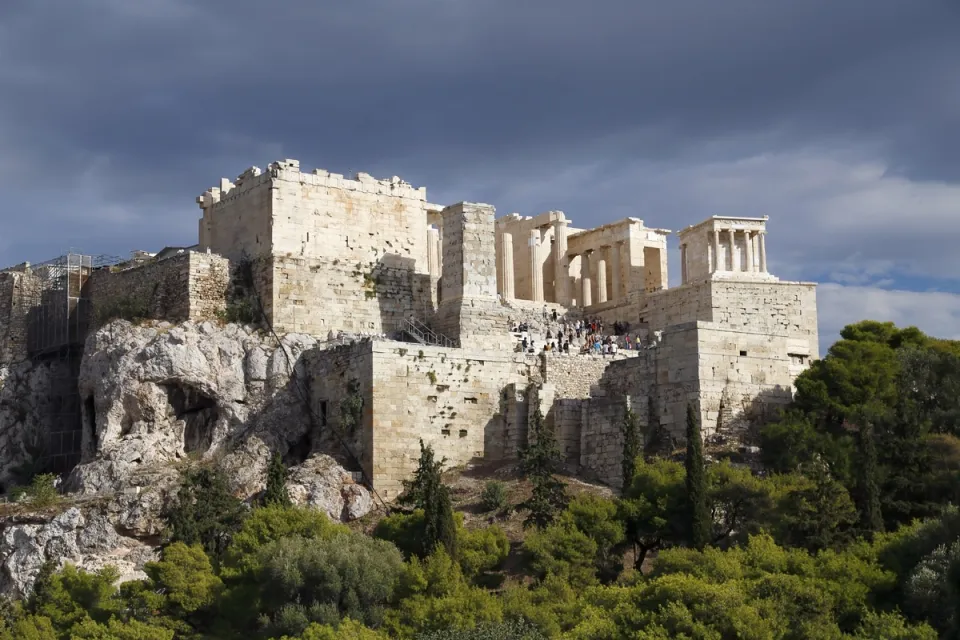Athens, Attica, Greece
Ακρόπολη Αθηνών (Akrópolē Athēnṓn ) [Greek]
ἡ Ἀκρόπολις τῶν Ἀθηνῶν (hē Akrópolis tō̂n Athēnō̂n) [Ancient Greek]
Προπύλαια (Propylaia) [Greek]

Architecture
The Propylaea constituted the monumental and representative gateway to the sacred area of the Acropolis. This Doric-style building complex, comprising a gatehouse and two wings, is particularly noteworthy for its conceptual combination of different building types.
structure overview
Architecture: Propylaea
built
435-430 BCE
style/period
form/concept
material
architect
Architecture: Acropolis of Athens
The Acropolis of Athens is an ancient citadel perched on a 150-meter-high flat-topped rock. The today's remaining buildings which were constructed in the 5th century BCE reflect the artistic and architectural achievements of the Golden Age of Athens and are a symbol of ancient Greek civilization in general.
built
2nd half of 5th century BCE
culture
style/period
work type
form/concept
material
patronage
Specifications
Specifications: Propylaea
height
21.2 m
Geography
local language location name
Αθήνα (Athína), Ελλάδα (Elláda) [Greek]
historical affiliations
498-336 BCE
336-227 BCE
227-84 BCE
84 BCE-395
395-1204
1204-1261
1261-1453
1456-1834
UNESCO World Heritage Site
type
cultural
criteria
I,
II,
III,
IV,
VI
designation
reference
404
Image characteristics
maximum image resolution
5,472 × 3,648 pixel
46.3 × 30.9 cm (300 dpi)
capture date
image processing
colour corrected
copyrights
Benjamin Hemer
(contact@imaginoso.com (send an e-mail))